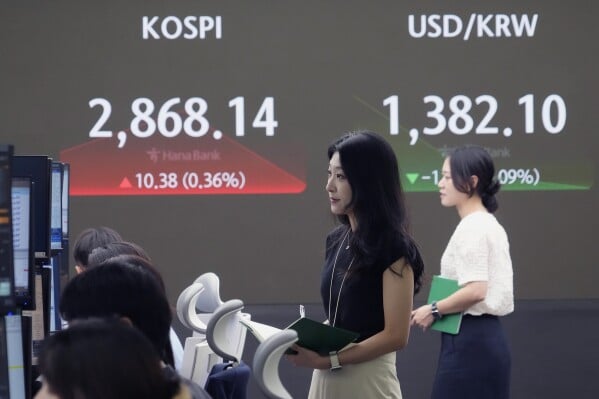Easy Trading Tips – Asian equities eased on Friday, rounding off an otherwise strong week on a quieter note as optimism over U.S.-China trade negotiations lost steam. Meanwhile, renewed expectations of U.S. monetary easing fueled a rebound in bond markets that had recently been under pressure.
Oil prices stabilized following a sharp 2% drop triggered by headlines around a possible U.S.-Iran nuclear agreement. Still, crude remained up about 1% for the week, supported by improving global economic sentiment.
In corporate news, shares of Chinese tech giant Alibaba (NYSE: BABA) tumbled 6.8% in Asia after its latest earnings report disappointed investors. The company’s U.S.-listed shares had already slid 7.6% during Thursday’s session.
Global equities have rallied this week, driven by relief over a pause in U.S.-China trade tensions, easing fears of a potential global downturn. However, as the weekend approaches, investors appear more cautious.
The U.S. dollar softened against traditional safe-haven currencies, with a 0.4% decline against the Japanese yen and a 0.3% dip versus the Swiss franc, signaling a more defensive tone among traders.
“The weekend looks less risky compared to last week, with no major geopolitical or economic events lined up,” said Kyle Rodda, senior analyst at Capital.com. “Still, under a Trump presidency, markets remain vulnerable to surprise tweets that could rattle sentiment by Monday’s open.”
On Friday, the MSCI Asia-Pacific Index (excluding Japan) dipped 0.1% to 613.4, although it remains on track to end the week with a gain of more than 3%. Goldman Sachs revised its 12-month target for the index upward from 620 to 660, citing improved regional prospects.
Chinese blue chips edged down 0.2%, while Hong Kong’s Hang Seng dropped 0.6%.
In Japan, the Nikkei 225 slipped 0.4% after economic data revealed a contraction in the country’s GDP for the first time in a year—highlighting vulnerabilities in Japan’s recovery amid ongoing global trade uncertainties.

